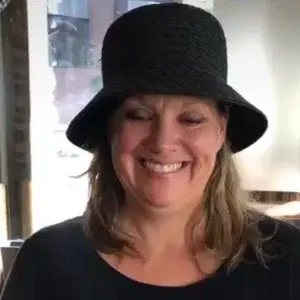

As the 2024 world juniors begins, Team Sweden will surely face some tough competition. Carol Schram writes what happened the last time the nation hosted the tournament.
 Team Sweden Jersey with Silver Medal at the 2014 World Junior Championship
Team Sweden Jersey with Silver Medal at the 2014 World Junior ChampionshipFor the first time in a decade, the World Junior Championship has returned to Sweden.
The Swedes are hoping that some home cooking and 12,000 fans decked out in yellow and blue at the fabulously named Scandinavium in Gothenburg will help snap a 12-year gold-medal drought.
On paper, the 2024 Swedes are a strong squad. They're anchored by a core group that beat out Team USA for gold at the 2022 World Men's U-18 championship. And 20 of the 23 players on their roster have been drafted by NHL teams, with forwards Jonathan Lekkerimaki, Noah Ostlund, Liam Ohgren and Filip Bystedt all taken in the first round in 2022.
This year, all tournament games will take place in Gothenburg, at the Scandinavium and the 7,600-seat Frolundaborg.
When Sweden's U-20 group last skated on home soil a decade ago, the southern city of Malmo played host.
Hopes were high in 2014, as Sweden was on a bit of a roll. Tre Kronor was just two years removed from its first world juniors gold in 31 years — and just its second gold in tournament history — after Mika Zibanejad had played overtime hero in Calgary.
In 2013, the Swedes followed up with a silver in Ufa, Russia, falling 3-1 to the Americans in the gold-medal game.
Now-familiar names on Sweden's 2014 roster include the team's captain, Filip Forsberg, along with Elias Lindholm, Andre Burakovsky and Alexander Wennberg. It was also the first year for the current tournament format, where the top four teams from the round-robin advance to the knockout playoff round while the bottom two teams play a best-of-three to determine which squad gets relegated to Div. I-A.
In Malmo, Sweden cruised through its round-robin games in Group B, going a perfect 4-0-0-0 while outscoring its opponents 22-7. That included a tidy 4-2 win over the Finns, who finished second in the group at 2-0-1-1.
Over in Group A, Canada topped the round-robin portion with a record of 3-0-1-0 and bested the United States by a 3-2 score on New Year's Eve. So while the Americans outscored their opponents 21-7, they settled for second spot in the group at 3-0-0-1.
Then, the upsets began.
In the quarterfinal, third-seeded Russia took out Team USA with a come-from-behind 5-3 win. Nikita Zadorov and Pavel Buchnevich each scored twice, while Andrei Vasilevskiy made 30 saves.
In the semis, Sweden got goals from Forsberg and Oskar Sundqvist to take down the Russians by a 2-1 tally, and the Finns stunned Canada with a 5-1 win off a three-point performance from their captain, Teuvo Teravainen. The result was sealed before the second period was half over when Artturi Lehkonen beat Zach Fucale for what proved to be the game-winner.
That set up a classic Sweden-Finland final. And to the disappointment of the home crowd in Malmo, the Finns prevailed in overtime.
Juuse Saros stood on his head in Finland’s net, making 35 saves in the 3-2 win. Teravainen assisted on all three of his team’s goals, and Rasmus Ristolainen played unlikely hero with the golden goal at 9:42 of the sudden-death period.
In the bronze-medal game, Vasilevskiy's Russians edged out Canada by a 2-1 score.
With 15 points in seven games, Teravainen finished as the tournament's leading scorer and was named to the media all-star team. Forsberg finished second with 12 points and was named tournament MVP.
Canada's Anthony Mantha was named the third all-star forward, along with Ristolainen and Zadorov on defense and Saros in net.
Finland's gold in 2014 was just its third in tournament history and its first since 1998. The Finns would go on to triumph once again in 2016 — on home soil — and in Vancouver in 2019.
Meanwhile, the 2014 tournament started a bit of a downturn for Sweden. Despite strong round-robin performances, they've only added three more medals in the last nine years — a silver in Buffalo in 2018 and bronzes in 2020 and 2022.


